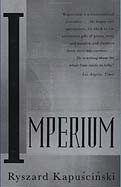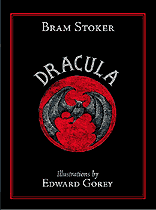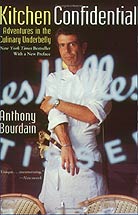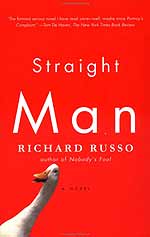Forgiveness is the wind-blown bud
which blooms in placid beauty at Verdun.
Forgiveness is the tiny slate-gray sparrow
which has built its nest of twigs and string
among the shards of glass upon
the wall of shame.
Forgiveness is the child who
laughs in merry ecstasy
beneath the toothed fence that
closes in Da Nang.
Forgiveness is the fragrance of the violet
which still clings fast to the
heel that crushed it.
Forgiveness is the broken dream
which hides itself within the corner of the mind
oft called forgetfulness so that
it will not bring pain to the dreamer.
Forgiveness is the reed
which stands up straight and green
when nature’s mighty rampage halts, full spent.
Forgiveness is a God who will not leave us
after all we’ve done.
by George Roemisch

Writing as a correspondent for various Polish journals and press agencies over several decades, Ryszard Kapuscinski travelled extensively through Africa, Latin America, and the former Soviet Union, documenting brutal conflicts and ravaged countries. Ryszard has a poetic ability to delve underneath the surface of geopolitics and reveal stories at a human level.
In Imperium, Kapuscinski covers the human experience in the territories of the former Soviet Union, starting with his remembrances as a young boy in Poland in 1939, hungry and wondering in quiet fear as his friends got deported, presumably to Siberia. In the 50s and 60s, and then again after Perestroika, Ryszard travels to the far flung outposts of former Soviet territories, reflecting upon the after affects of Stalin and later the dramatic changes from the disintegration of the Soviet empire.
Continue reading →

One of my earliest memories is of my father tiptoe-ing into our room at night, arms raised, saying in a low trebbly voice, “I vant to drrrrink yourrr blood!” He would then descend upon us shrieking kids and tickle us into giggling hysterics. The character of Count Dracula has so infused our culture – think Halloween costumes, Bela Lugosi, and “Count Chocula” cereal – yet who among us has taken the time to actually read the book that propelled this vampire into our national consciousness? Bram Stoker’s Dracula wasn’t the first vampire story every published but it is certainly the most popular.
Continue reading →

Kitchen Confidential: Adventures in the Culinary Underbelly by Chef Anthony Bourdain tops many a recommended reading list on my favorite food weblogs. So when I noticed it on the book list at Audible.com
by Chef Anthony Bourdain tops many a recommended reading list on my favorite food weblogs. So when I noticed it on the book list at Audible.com , narrated by the author himself, I snatched it up. It does not disappoint. Kitchen Confidential is a rollicking, crude, hysterical, and sobering account of life behind those kitchen doors at the best restaurants in New York City. Bourdain pulls no punches in his storytelling, honestly copping to his early career addictions with drugs and alcohol. Of note is his revelation of why he is not the best chef – that early on he went for the money instead of apprenticing himself at lower pay to the real masters. This book has tips on cooking like a chef – what knives to buy, kitchen equipment really needed, insights on why more restaurants fail than succeed, and presents Bordain’s code of values and behavior that will help you succeed should you choose the professional culinary life.
, narrated by the author himself, I snatched it up. It does not disappoint. Kitchen Confidential is a rollicking, crude, hysterical, and sobering account of life behind those kitchen doors at the best restaurants in New York City. Bourdain pulls no punches in his storytelling, honestly copping to his early career addictions with drugs and alcohol. Of note is his revelation of why he is not the best chef – that early on he went for the money instead of apprenticing himself at lower pay to the real masters. This book has tips on cooking like a chef – what knives to buy, kitchen equipment really needed, insights on why more restaurants fail than succeed, and presents Bordain’s code of values and behavior that will help you succeed should you choose the professional culinary life.
Continue reading →

The concept of time traveling has been explored in many classic tales, but usually the time traveler goes back in time hundreds of years ago where there’s no chance of running into someone she knows. What if you went back in time and actually interacted with your younger self, or forward with your older self? In Audry Niffenegger’s The Time Traveler’s Wife, the protagonist Henry De Tamble has a genetic disorder – “Chrono Displacement” – in which he unwittingly leaves the present moment and is transported backwards and forwards in time. As a middle aged man he travels back in time and meets is future wife when she is only 6 years old. He visits her frequently as she grows up, though when she finally meets him in the present time, he doesn’t know who she is, because in the present, he is just meeting her for the first time. Time traveling is not as romantic a notion as one might think. It is dangerous for Henry as he is always transported naked, and therefore arrives naked, and often in freezing weather and around unsavory characters. Henry must learn to pick-pocket and steal, just to survive.
Continue reading →

Henry Devereaux, Jr. is a wise-cracking interim chair of the English department of an unremarkable Pennsylvania college. While fending off intradepartmental pettiness and politics in the face of looming layoffs, Henry has to sort out the breakup of his daughter and son-in-law, crushes on co-eds, jealous imaginings of his wife with other men, his threatening to kill a duck (while holding a goose) that gets broadcast on the local news, and a pecker that refuses to pee.
Pulitzer prize-winning author Richard Russo’s Straight Man is a situation comedy in the vein of TV’s Fraser; every time Henry tries to extricate himself from one bad situation, he ends up in a worse one. The writing is excellent – witty, well paced, and the main character well-drawn as just an everyday guy just trying to get by and make sense the world.
Continue reading →




